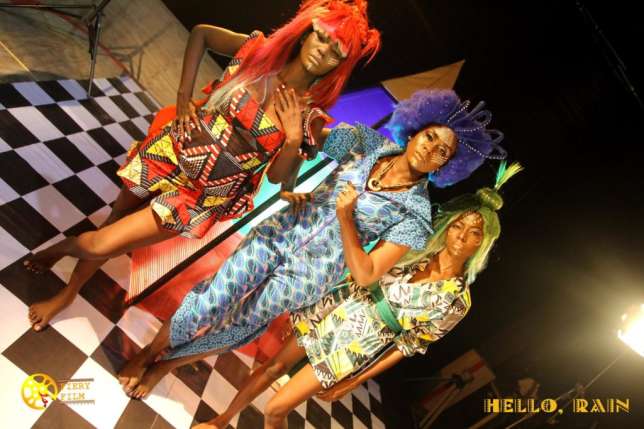The latest Nigerian film to prompt this question is “Hello, Rain,” a C.J Fiery Obasi film which merges magic and technology. The sci-fi film is the screen adaptation of Nnedi Okorafor’s “Hello, Moto.”
Of course, the Nigerian film industry has had sci-fi films such as “Kajola,” “Device” and “The Day They Came,” but none, despite the effort, had mainstream success or launched the genre.
The most successful genre in Nigeria is comedy: the top three highest grossing films are all comedy. Currently, there’s an influx of the genre in the Nigerian market, which can be attributed to its already existing success. Filmmaking is a business and one can only make money by delivering what his/her audience wants.
There are several reasons why some of these unconventional genres are left untouched in Nigeria. When you look at the resources that go into making one, you will realize why some filmmakers won’t take the risk with a genre that isn’t tested, trusted or accepted by the audience.
Does this mean that there’s no room for the success of unconventional genres? No. There’s actually an audience for every film.
“Everybody enjoys a range of films. I think what tends to happen a lot of time is that people like to box African films,” Akin Omotoso said during the screening of “A Hotel Called Memory,” yet another uncommon kind of film; a Nigerian film with no dialogue.
C.J Fiery is one of the three young filmmakers under the collective ‘Surreal 16’: a collective designed to create a new kind of Nigerian cinema that is unhinged and unconventional.
With projects such as “Ojuju,” “O-Town,” “Mami Wata” and “Bruja,” Obasi has always been an ardent supporter of alternative narrative in African filmmaking.
Obasi isn’t alone. Keira Hewatch, who leads the cast of the upcoming “Hello, Rain,” shows her apparent passion for innovative projects as she had also starred in Niyi Akinmolayan’s 2010 sci-fi film, “Kajola”.
She is of the opinion that just as the success of a particular film started a boom of comedy craze, a successful sci-fi film will also kick off one for the genre. A commercially successful sci-fi film will be a huge boost for several other filmmakers who dream of touring this less travelled route.
“It’s wrong to assume that people are just stuck on comedy,” she told Pulse Nigeria.
“The reason why it seems like they are stuck on comedies is because it is a tried and tested road that worked, so producers are playing safe and sticking to it, which is great.”
What happens when/if these uncommon films fail to go mainstream or break box office numbers in Nigeria?
In 2016, “Green White Green” screened in Nigeria after its premiere at the Toronto International Film Festival among other festivals. Unfortunately, it never made it to any Nigerian cinema.
“It isn’t for the Nigerian audience,” film distributors said.
“It’s what it is. The way the industry is structured right now, it is at a place where they are not willing to take certain risks. And I completely understand it,” Abaa Makama, who directed “Green White Green” said about the performance of the movie in Nigeria.
“They feel like the audience has not evolved to a degree where they would assimilate this type of work. But, it’s all about risk-taking.”
However, the cinema isn’t the only existing distribution platform in Nigeria. According to Makama, “Green White Green” went on to become a commercial success.
“We have done well at festivals, but we have also penned a lucrative deal with Netflix, and it’s going to be on several international airlines. We are making our money back, and then some,” he said during a chat with Wana Udobang on Culture Diaries.
These unconventional films may not be a mainstream success, but they are successful in their own right.
Africa has a lot of stories to tell and quite a number of filmmakers who want to tell these stories. Most Nigerians may not be ready for a sci-fi movie, but there are viewers who yearn for a variety of stories.
Projects such as “Hello, Rain,” “Green White Green,” “A Hotel Called Memory” and a remake of “Kajola,” will always find its audience.

